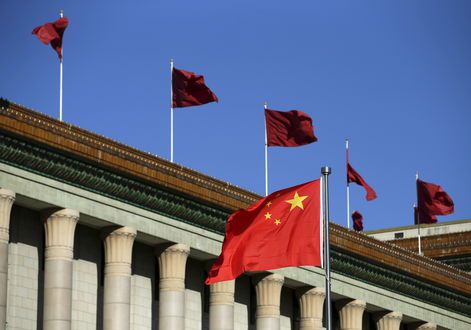Dr DK Giri
In a violent clash between the Indian and Chinese soldiers last Monday at Galwan Valley in Ladakh, over 20 Indian soldiers, including a colonel were killed and more were injured. Casualties are reported from the other side, but the exact number is not known. Such violent deaths of our soldiers at the LAC have not occurred since 1945. The good news is that the ‘Chinese empire’ would fall; this incident would be the beginning of that fall.
Pradip Bose, author and journalist, the founder of the Association of Democratic Socialism, had predicted privately the fall of Soviet empire, the unification of Germany and the fall of the Chinese empire. He had bemoaned, “I may not be alive to see the fall of Chinese empire”. He died a few years ago. Bose was considered to be one of the best minds of Asia. The basic premise of his prediction was that any government that does not allow freedom of choice to its people will inevitably collapse. Soviet Communism could not pass the test of time and Chinese totalitarianism will meet the same fate.
In a Communist autocracy, the unbridled power of the supreme leader at home, in this case Xi Jinping, who has elected himself to be the leader for life, makes them hunger for more control and influence abroad. No wonder, China in engaged in incendiary acts vis-à-vis a number of countries.
Unless we have a long term, consistent approach, we cannot effectively deal with the current ‘limited border war’ with China. Before we adumbrate a China strategy, we must recognise and remember the mistakes we made in the past, and the missteps taken by the present government. It may sound painful at this stage, but without facing the facts, and acknowledging the mistakes, we cannot apply the correctives and move on.
Jawaharlal Nehru blundered on India’s role and strength as a world power back in 1950s and 60s, and heavily relied on China. We have mentioned these mistakes ad nauseam; the UNSC membership, the nuclear Bomb, the ‘K’ question, the NAM, Tibet, 1956 equivocation on foreign aggression, and the anti-West posture. Modi began well by unloading some of these baggage of the past. On China, Modi fumbled between countering and accommodating it, and perhaps with the advice from MEA mandarins, tried to do both, running with the hare and hunting with the hound.
What is worse, Modi began to undo himself in his second term in our foreign policy. To start with, his choice of Foreign Minister, a former bureaucrat. Rajiv Gandhi made the mistake of appointing technocrats as ministers and to key positions. Modi did it even three times more than Rajiv, blurring the difference between bureaucrats who live in files and furniture, and the politicians who feel the push and pulse of the people. Then Modi called a meeting of SAARC, addressed the meeting of long-dead NAM, hugged the Chinese leader, twice in agenda-less meetings while joining all the available anti-China groupings.
The Chinese incursion was waiting to happen. Only the government failed to see it coming. Nehru was lulled into complacence by the Chinese. Modi, a shrewder politician, too was led up the garden path by our bureaucrats on China.
Why was a military alliance not in place to fend off China in such an eventuality? Let us not delude ourselves that we can fight China on our own. The concept of self-reliance is fallacious both in economy and foreign policy; Modi has confused us and the world by using this obsolete term, again a throwback to the past. It should be rather self-confidence. We did not compete with China for a long time. China should have been the reference point for our foreign and economic policies, not Pakistan, which is just a vassal state of China. Follow the Japanese, South Korean or Israel model of defense of the country, not the NAM nonsense.
Here we are now. Let us learn the lessons from our mistakes.
